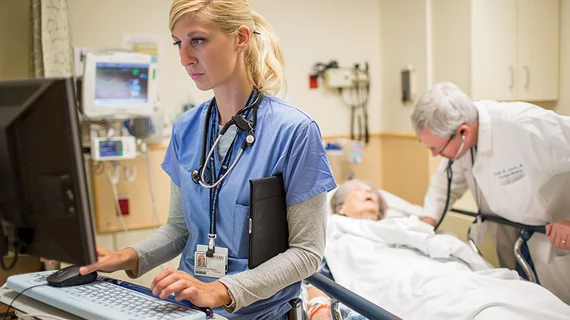A multidisciplinary innovation team at Duke Health has been asking frontline healthcare workers about their most vexing problems and soliciting their ideas for tech-based solutions since 2014. Most of the proposed visions have involved AI or machine learning.
But coming up with nifty tech tools is only part of the battle to getting them used on the hospital floor. For that the team has brought aboard some unlikely experts.
Take their anthropologist and their sociologist. These colleagues stepped in when, for example, doctors bristled over nurses calling them with alerts from a deep learning sepsis predictor.
Stat News has the story.
“The Duke nurses came up with a range of strategies to deal with this issue, such as timing their calls carefully with physicians’ schedules to make sure they were in a headspace where they would be more receptive to their call,” health-tech writer Erin Brodwin reports.
“At times, they bundled their calls, discussing several patients at once so they wouldn’t be seen as a repeated disruption,” she continues. “But that effort—something [anthropologist Madeleine Clare] Elish and [sociologist Elizabeth Anne] Watkins called ‘repair work’—is difficult and emotional, and it takes another toll on nurses’ well-being.”
Brodwin also looks at a “nutrition facts” idea the innovation team has been noodling with. Its real-world result would be designed to resemble the label you read when buying packaged food, and it would clearly and simply explain how and why to use a given AI tool.
“Duke’s approach is an effort at transparency,” Brodwin notes, “at a time when the vast majority of AI tools remain understudied and often poorly understood among the broader public.”

